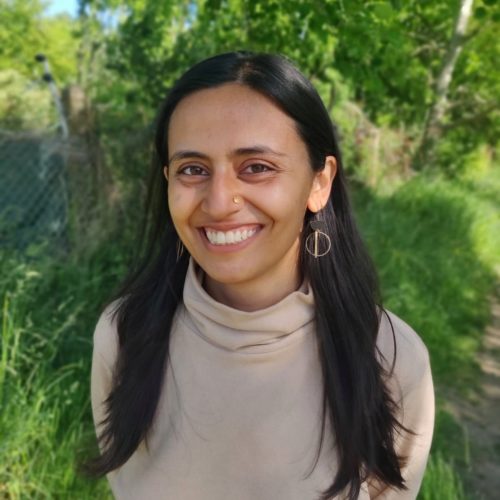PhD Project
The doctoral study investigates the path dependent land use changes that have occurred and continue to occur in the cotton belt of South Punjab as well as their social and ecological outcomes. The main research question is: What processes underlie agricultural intensification in the cotton belt of south Punjab in the post Green Revolution era (post-1974) and what are future scenarios for agrarian transformations?
The concept of ‘agrarian assemblages’ is used as a holistic approach to study various dynamic elements and actors as well as the particularities of their dynamisms to understand complex agricultural systems. Assemblage approach can shed light on processes of emergence and assembling of factors to give form to agrarian structures. Objectives of the research are (a) to highlight the role of path dependencies in outcome of agricultural technology, (b) to identify patterns of land use change especially the loss of agricultural land and actors and elements that play a role therein and (c) to identify alternative(s) to agricultural intensification for (socially and ecologically) sustainable agricultural transformation pathways using participatory methods.
The dissertation is primarily an ethnographic qualitative research using a comparative case study approach. Methods include in-depth semi-structures interviews, surveys, observations, mapping, and remote sensing data analysis. Future scenario development using participatory workshops with key stakeholders is planned. The research approach allows for a critical analysis of intensification pathways and opens discussion of locally adapted alternative approaches for transformation of agriculture in south Punjab, Pakistan. Mehwish’s PhD project is sponsored by the Federal Ministry of Education and Research (BMBF) within the research program ‘Bioeconomy as Societal Change’.
Output
Zuberi, M., Spies, M., Ø. Nielsen, J.Ø. (2024): Is there a future for smallholder farmers in Bioeconomy? The case of ‘improved’ seeds in South Punjab, Pakistan. Forest Policy and Economics Volume 158. Special issue on ‘Bioeconomy Governance in the Global South: State of the Art and the Way Forward’. https://doi.org/10.1016/j.forpol.2023.103100
Zuberi, M., Raab, C., Spies, M. (2022) Landnutzungswandel im Baumwollgürtel Pakistans. Gen-Baumwolle, Agrardiversifizierung und ökologische Herausforderungen im Süden des Punjab, Geographische Rundschau 75/4, 20-25.
Spies, M., Zuberi, M., Mählis, M., Zakirova, A., Alff, H., Raab, C. (2022) Towards a participatory systems approach to managing complex bioeconomy interventions in the agrarian sector. Sustainable Production and Consumption.https://doi.org/10.1016/j.spc.2022.03.020
Zuberi, M. (2021) “Between Disconnects and Flows: Reflections on Doing Fieldwork in Rural South Punjab during the Covid-19 Pandemic,” In: Südasien-Chronik – South Asia Chronicle 11/2021, pp. 521-540, Südasien Seminar der Humboldt-Universität zu Berlin, pp. 521-540. https://www.iaaw.hu-berlin.de/de/region/suedasien/publikationen/sachronik/sachronik
Luo, A., Zuberi, M., Liu, J., Perrone, M., Schnepf, S., Leipold, S. (2021) Why common action and interest are not enough for environmental cooperation. Lessons from the Chine-EU cooperation discourse on circular economy. In: Global Environmental Change, 71.
https://doi.org/10.1016/j.gloenvcha.2021.102389
Zuberi, M. (2020): “Agriculture in flux: Insights into agricultural transformations and possible scenarios in South Punjab, Pakistan.” In: Follmann, Alexander, Müller, Judith und Falk, Gregor C. (Hrsg.): Aktuelle Forschungsbeiträge zu Südasien: 10. Jahrestagung des AK Südasien, 24./25. Januar 2020, Freiburg, Heidelberg; Berlin: CrossAsia-eBooks, 2020 (Geographien Südasiens, Band 12). Pp. 31-34. https://doi.org/10.11588/xabooks.796



